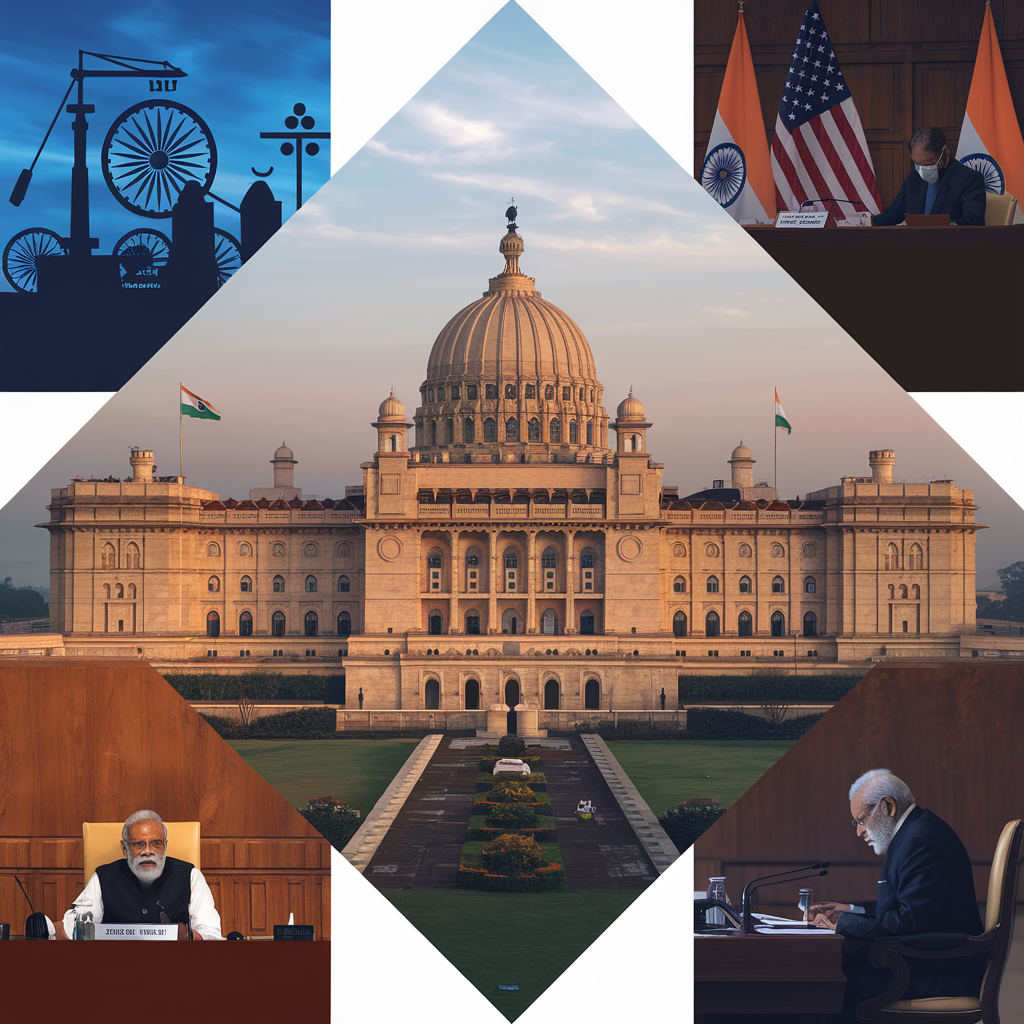Insights from the Parliament Budget Session: Key Developments on February 6, 2025
The annual Parliament Budget Session is a cornerstone of India's legislative calendar, shaping the future of the nation's economic policies and their immediate impact. With the Union Budget 2025-2026 at the helm, this session is not just about numbers—it's about priorities, promises, and progress. Let's dive into the pivotal developments from February 6, 2025.
Union Budget 2025-2026: A Blueprint for Progress
Why Does the Union Budget Matter?
The Union Budget is more than a ledger; it's a strategic plan for India's growth. Unveiled by Finance Minister Nirmala Sitharaman on February 2, 2025, it highlights where the government will allocate funds, aiming to bolster infrastructure, healthcare, and education among other sectors. These decisions play a critical role in driving sustained development.
What are the Key Discussion Points?
As the budget debates heat up in both Lok Sabha and Rajya Sabha, expect differing priorities to emerge. Will there be a push for more healthcare funding? Or will infrastructure and educational reform take center stage? Each sector presents a different vision for India's future.
Adjournment Motions: Raising Urgency
How Do Adjournment Motions Impact Policy?
These motions allow members to bring emergent issues into the spotlight, such as the pressing issue raised by Congress on the deportation of Indian nationals from the United States.
What Are the Potential Diplomatic Consequences?
The deportation debate might affect India-US relations, challenging how both nations handle immigration policies. These discussions could set important precedents for future diplomatic engagements.
Prime Minister’s Reply: Setting the Agenda
Why is the Prime Minister’s Reply Crucial?
Prime Minister Narendra Modi's response to President Droupadi Murmu's address isn't just procedural—it's fundamental in setting the government's legislative and policy priorities.
What Insights Can We Expect?
Look for insights into national security, economic strategies, and social welfare initiatives. These discussions are anticipated to significantly influence public opinion and future policy directions.
Daily Agenda: Legislative Processes and Debates
What’s on Today’s Agenda?
Starting with the Question Hour, the day's agenda covers various legislative processes with ministries providing crucial updates. These form the foundation for informed decision-making.
How Do These Discussions Influence Government Policy?
By engaging in detailed discussions, elected representatives can address current challenges, refining policies to better serve public needs—a hallmark of healthy democratic governance.
New Income Tax Bill: Reforming for the Future
Why is the New Income Tax Bill Important?
Designed to replace the Income Tax Act of 1961, this bill aims to modernize the tax framework, making it more efficient and equitable for today's economic realities.
How Might These Reforms Affect You?
Expected changes include simplified tax filing processes, revamped tax brackets, and improved compliance. These could ease the taxation burden, boosting transparency and expanding revenue collection.
Debates and Disruptions: Yesterday’s Highlights
What Sparked the Disruptions Yesterday?
A heated exchange following Rahul Gandhi's speech underscored the intense political atmosphere. Meanwhile, the call for discussion on the Mahakumbh stampede tragedy emphasized the critical need for better crowd management practices.
Why Does the Mahakumbh Stampede Require Attention?
Such incidents pressure the government to enhance safety measures for large gatherings, ensuring public safety remains a priority in legislative action.
Session Structure and Expectations
What’s the Structure of This Session?
Spanning from January 31 to April 4, 2025, this session is designed to offer thorough debates and reviews of legislative proposals, ensuring they align closely with public interest.
What Outcomes are Anticipated?
The session aims to introduce pivotal legislation impacting economic policies, legal reforms, and social welfare, each critical in shaping India's trajectory.
Conclusion: The Road Ahead
The ongoing developments in the Parliament Budget Session have far-reaching implications for India's future. As these discussions unfold, they are poised to affect both the immediate lives of citizens and broader national policies.
Stay informed and involved as these significant decisions are not just crafted in the halls of Parliament but echoed in the lives of everyday Indians. This engagement is vital to understanding the intricacies of policy-making and how it steers national progress. Join us in this journey of democratic participation and reflection on our shared future.









